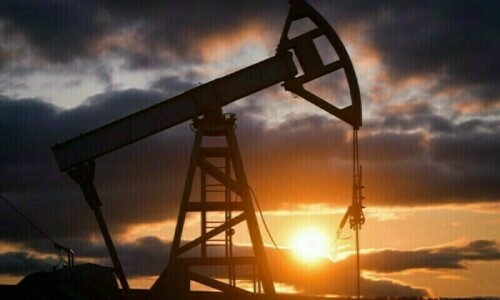ISLAMABAD, Dec 26: The Economic Coordination Committee (ECC) of the cabinet will meet on Tuesday next to discuss the issue of the artificial countrywide shortages of petrol and the demand of the oil marketing companies (OMCs) for an increase in profit margin.
Majority of the petrol stations countrywide are faced with supply shortages, though at different levels. The shortage is believed to have been caused by oil marketing companies which want the government to increase their per litre profit margin on petrol from the existing Rs0.66 to around Rs1.50, equal to that of the profit margin on diesel.
The shortages are more evident in Punjab, where petrol supplies have declined by more than 40 per cent over the last one week.
Sindh, Balochistan, NWFP and upper parts of the country are now also feeling the widening gap between the supply and demand of petrol.
The marketing companies have fuelled up the demand for increase in profit margin since December 15, when the government refused to slash petroleum products prices for domestic consumers despite constant fall in international crude oil prices and rather increased the ratio of tax, the Petroleum Development Levy (PDL), to earn more.
The government now charges Rs29.49 PDL on a litre of petrol sold at retail outlets. The PDL ratio on a litre of petrol is, however, Rs30.24 if sold directly to consumers by companies.
The oil marketing companies have demanded the government to increase their profit margin by reducing the ratio of PDL so that consumers are also not affected.
Sources told Dawn that a summary by the ministry of petroleum had already been forwarded to the ECC and that it was more likely that the demand of the marketing companies would be accepted to normalise petrol supplies.
They said the government had no other option but to increase the profit margin because, if they further tightened the screw on petrol supplies domestic refineries will suffer further.
Oil refineries are already operating at 40 to 50 per cent of their capacity due to declining petrol consumption, which is the most expensive fuel compared to diesel and compressed natural gas.
The government, under a policy, is already trying to bring the petrol prices below that of diesel to encourage its consumption and enable refineries to operate at full capacity.
The ECC will also take up the issue of cartel-like behaviour of a number of transport companies who have been charging double than usual freight rates for the upcountry transportation of imported wheat. This has added to the cost of the imported wheat and has put extra burden on flour consumers.
Sources told Dawn that the ECC will also get recommendations of a committee, formed earlier, on how to reduce air, rail and road transport fares.













































Dear visitor, the comments section is undergoing an overhaul and will return soon.